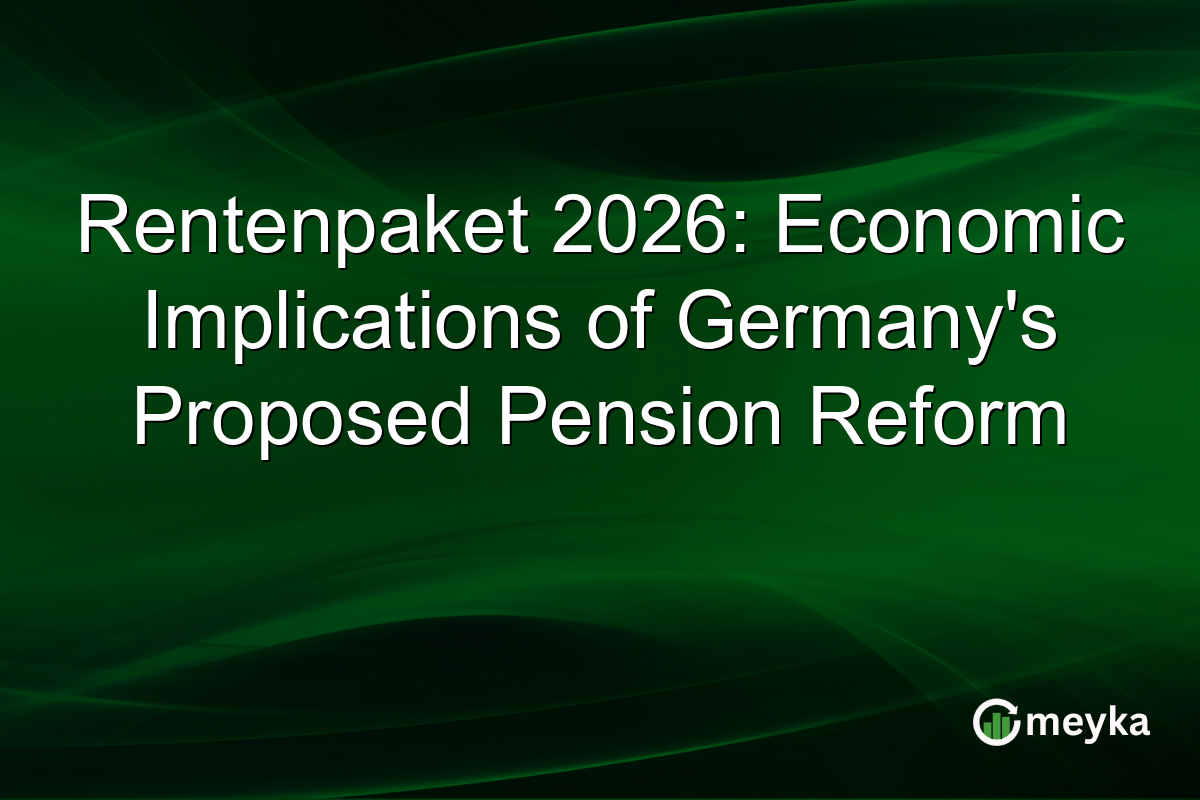Rentenpaket 2026: Economic Implications of Germany’s Proposed Pension Reform
Germany’s recent announcement of a 3.7% pension increase in 2026 as part of the Rentenpaket 2026 has garnered significant attention. This rise, driven by improving gross wages, represents a key component of the country’s ongoing pension reforms. However, the implications of this decision extend far beyond immediate financial relief for retirees, touching upon broader economic variables and legislative hurdles.
Continue Reading on Meyka
This article is available in full on our main platform. Get access to complete analysis, stock insights, and more.
Read Full Article →





